Heart of Darkness by Joseph Conrad
Why It's a Masterpiece (Week 16)
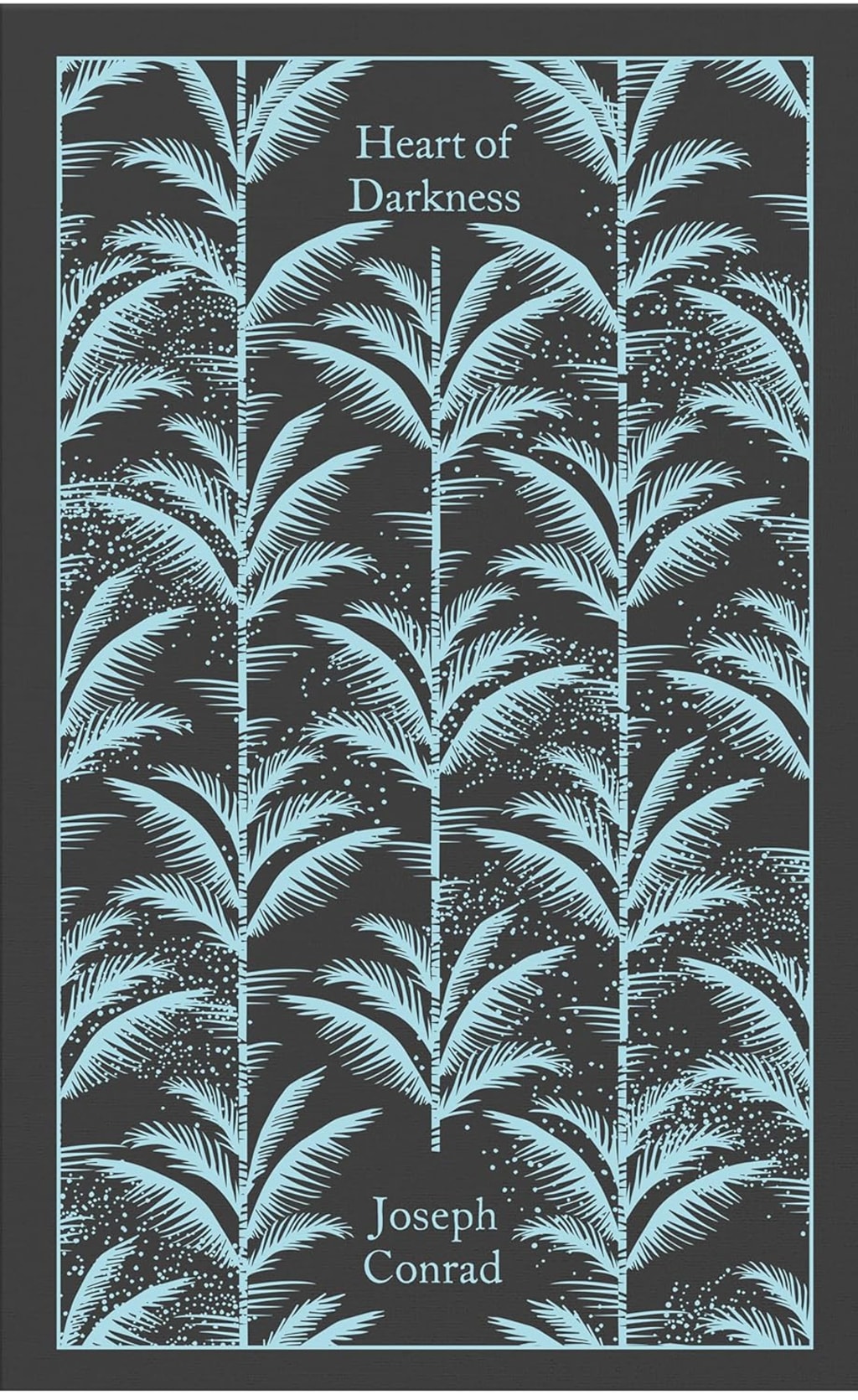
The legendary writer, Chinua Achebe once referred to this book as a racist depiction of tribal people and deemed it unfit to be thought of as great literature. I think he may have been on to something but also he may have been wrong. He’s on to something as this is, in fact, a racist depiction of tribal people. But to deem it unfit of being one of the best written books of all time is to discount the fact that: maybe that was the whole point. Maybe Conrad was trying to show the world its own shame in portraying society this way. The fact that the ending is far less happy than the regular white tradesman wants it to be is something to be discussed, not hidden.
Published as a complete book in 1902 after its serialisation a few years’ earlier, ‘Heart of Darkness’ has proven to be one of the most controversial books ever written and that’s not only because of the griefs of Chinua Achebe - it’s also because of the way the book presents violence and the duplicity of human nature, the lack of humanity for fellow human beings though they be of different backgrounds and the colonial mindset of the explorative attitudes we see in the protagonist, Marlow. But by far the most controversial thing about the novel is Kurtz - and that’s not just because of Marlon Brando but he probably had something to do with it. In our public consciousness, the image of Kurtz is a fearsome Brando, a brilliantly acted role but in reality, Kurtz was nothing as charismatic as someone like one of the greatest and most respected actors of all time. He was something else entirely.
Plot
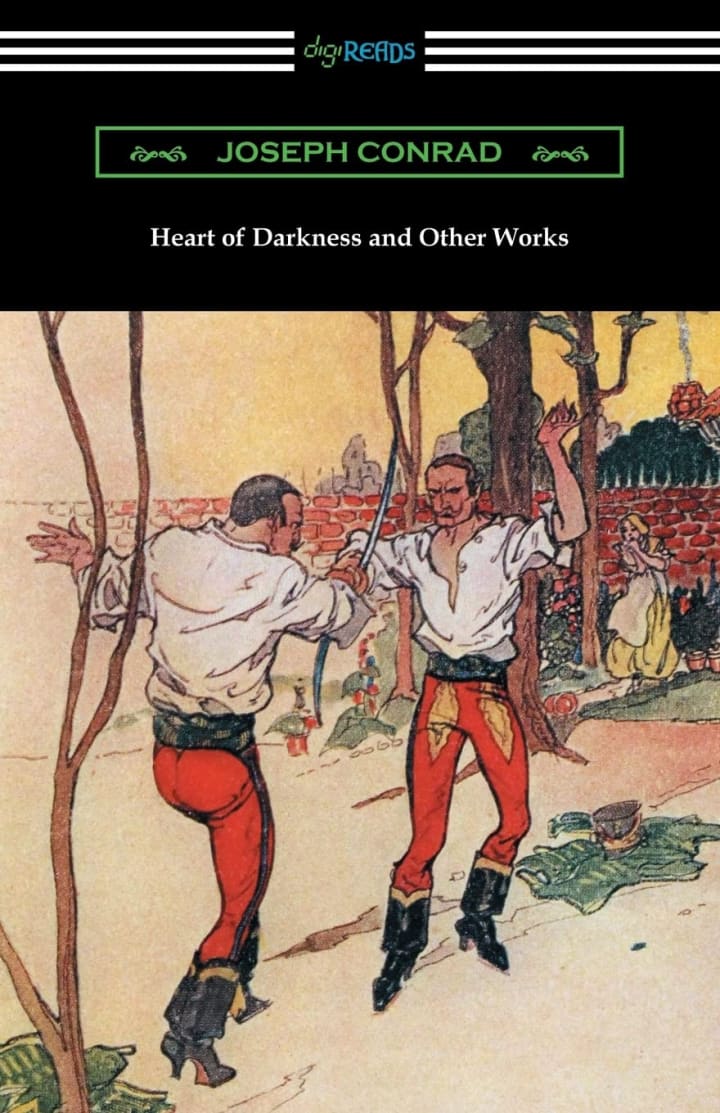
There are five important people at the start of the book and one of them is Charles Marlow, who is interested in travel and is waiting for the tide to go out at the mouth of the Thames. Obviously, there is a reflect on the Thames as being one of the best trade routes ever and how England was once explored by the Romans. He then begins to recall an experience on the Congo River - an experience he would never forget.
Marlow travels to Brussels to sign the contract with the Company and thinks about the fate of his predecessor, Fresleven who was killed in a fight over hens with the natives. He encounters some women knitting black wool and after a brief meeting with the head, he undergoes a medical examination where the doctor emphasises the importance of Marlow looking after his health whilst in Africa because of the changes he will undergo. Marlow then says goodbye to his home and though he is aware of the profit-driven motives of the Company, he experiences this sensation that he may be taking a journey to the centre of the earth.
As he travels, Marlow encounters some very grizzly scenes including one of an uninhabited forest coast and, as he arrives to the mouth of the Congo River, he looks at the decaying machines and the dying native labourers. He is informed of Mr Kurtz and is asked to take a message to him. But he finds his steamer has sunk due to negligence and thinks it is deliberate though he cannot prove it was. He will have to spend a few months repairing the ship before he sets sail. He observes the abuse of the native labourers and is yet only disheartened by the fact his ship still fails when it does set sail.
Marlow then overhears some people talking about Kurtz and his plans for reform and the take over of the manager’s position. However, they hope Kurtz will succumb to the harsh climate of the African state. Marlow then confronts them but they leave without acknowledging his existence. He then prepares to embark upon a journey to see Kurtz.
Marlow’s journey is difficult and as they near Kurtz’s station they encounter thick fog and then realise through the screams, that there are cannibals on board the ship - and they are hungry. As people are fatally wounded from a confrontation, Marlow seriously begins to contemplate whether he will be too late to see Kurtz as he may or may not be dead.
Marlow reflects on Kurtz’s fiancee whom Kurtz spoke of possessively, and his disturbing sense of mastery over everything including the natives - which led him to become absorbed into native life. The ship further approaches the inner station as the trader tells Marlow about Kurtz, asking Marlow to let Kurtz expand his mind.
The Russian trader asks Marlow to take Kurtz away quickly and explains how Kurtz has raided the countryside for ivory with a native tribe and has thus, been abandoned by the Company. Marlow looks at the head on the fence posts around the station compound, revealed to be revels and though it is disgusting it causes him to laugh at the absurdity of it. Kurtz is brought aboard the ship and has a clearly deteriorating mental state. Marlow then expresses intent on having the Russian hanged after learning of a possible coup-de-tat of the ship since Marlow is now protecting Kurtz.
Marlow finds Kurtz missing from the cabin and goes to search for him by himself and not raise any alarm. He finds Kurtz near a campfire and tries to convince him to return to the ship. As Kurtz is put back on the ship, his mistress calls out to him, causing a commotion. Marlow intervenes with the violence of the natives and Marlow is obscured by the natives opening fire.
There are people who still think Kurtz will die and then they will have control over the situation. The ship approaches a sense of civilisation accustomed to the white people of the journey and Marlow spends much of his time with Kurtz. Kurtz believes he may not survive to return to Europe as the ship breaks down mid-journey and entrusts Marlow with a huge bundle of papers which are his writings. Kurtz’s condition deteriorates before he utters the most famous lines of the book “The horror! The horror!” And then, he dies.
Marlow returns to Brussels and struggles with the self-important nature of the people around him. He visits Kurtz’s fiancee who is in mourning and lies to her about Kurtz’s last words, trying to keep her from learning the truth out of pity.
Into the Book
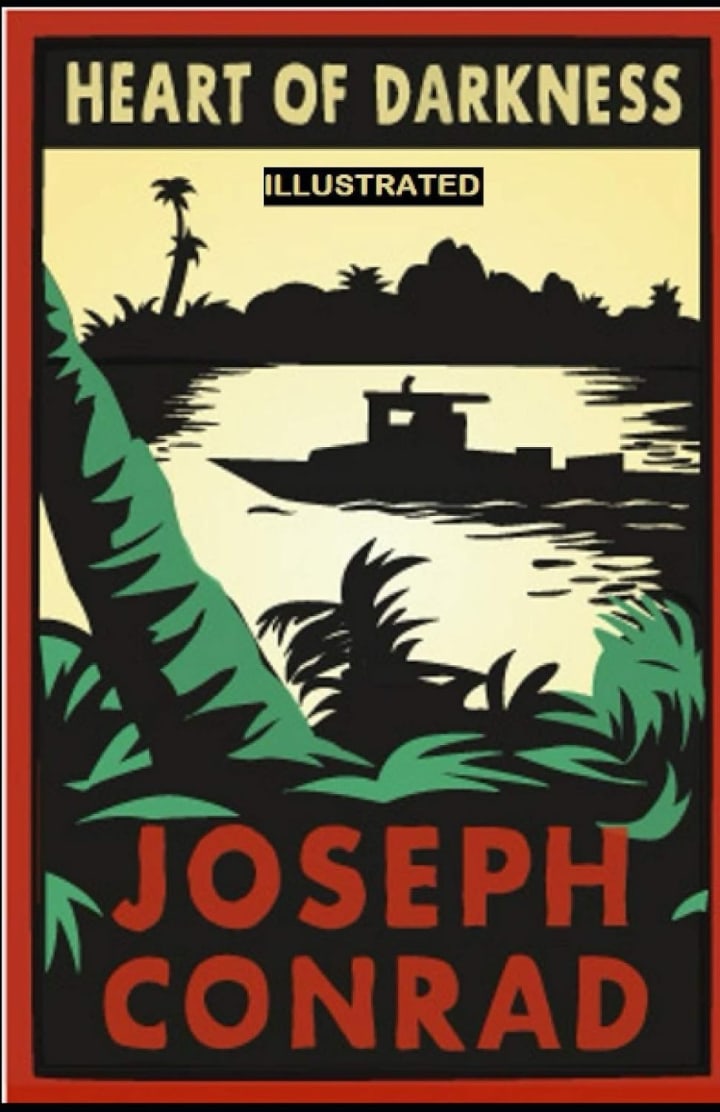
There are many themes, motifs and symbols in this book - and I have enjoyed teaching them whenever I get the chance. One of the ones I like the most is the theme of madness. Throughout the book, madness is linked to unfamiliarity. For example: the journey to Europe doesn’t turn the natives of Africa mad, but the journey to Africa turns the Europeans mad and so, it is a character fault specifically to those who live more superficially. This is reflected in the psychological distress Marlow feels when he returns to Europe and sees that everyone thinks they are very important by comparison.
The disillusion felt by Marlow is only a trickle through though, it is Kurtz’s reaction to basically being blacklisted by the Company which is something else entirely. When we meet him for the first time, he is a sack of paranoia and this continues to when he leaves the ship, when he is brought back, when confrontation ensues and when everything around Kurtz starts to crumble. He is the disillusioned character who represents madness and the rejection of imperialism for the sake of not having something better, but basically resignation. He knows, as well as everyone else, that he is going to die, so why cover up these habits that have begotten him a reputation for madness. When the truth finally comes out about the fact he will never see Europe again, he utters those final maddening words that ring in the skull of the author even several years after they have finished the novella.
“But his soul was mad. Being alone in the wilderness, it had looked within itself and, by heavens I tell you, it had gone mad.”
- Heart of Darkness by Joseph Conrad
One of the key symbols here is the river. The river allows the white people to remain outside of the main action, gaining access to the centre of the land without ever actually stepping upon it. For Marlow, Africa is reduced to these two dimensional sceneries in which they are a dichotomy of behaviours: a scale of what is and what is not civilised. It is a projection which we can say Marlow feels insecure in himself about which is why he judges the natives in this light. The river’s will to expel the Europeans from Africa is another way the river protects its natives from the influence of imperialism - the way back is much faster than the way there, feeling rapid and predictable compared to the unpredictability of the journey towards it.
“We penetrated deeper and deeper into the heart of darkness”
- Heart of Darkness by Joseph Conrad
One of the key motifs of the novella is darkness and that does not just have to do with the novella’s title but instead is relative of the condition of human nature - especially that of the imperialists. Darkness, meaning the inability to see through something is relative to the condition that both Marlow and Kurtz experience to a degree as they do not know why the natives behave the way they do and cannot see the motives for their actions. They cannot see how any individual’s actions can be influenced by place and upbringing rather than a respect for society and civilisation - two things that mean different things when they get to the heart of Africa.
“Do you see the story? Do you see anything? It seems to me I am trying to tell you a dream--making a vain attempt, because no relation of a dream can convey the dream-sensation, that commingling of absurdity, surprise, and bewilderment in a tremor of struggling revolt, that notion of being captured by the incredible which is the very essence of dreams...”
- Heart of Darkness by Joseph Conrad
Why It’s a Masterpiece
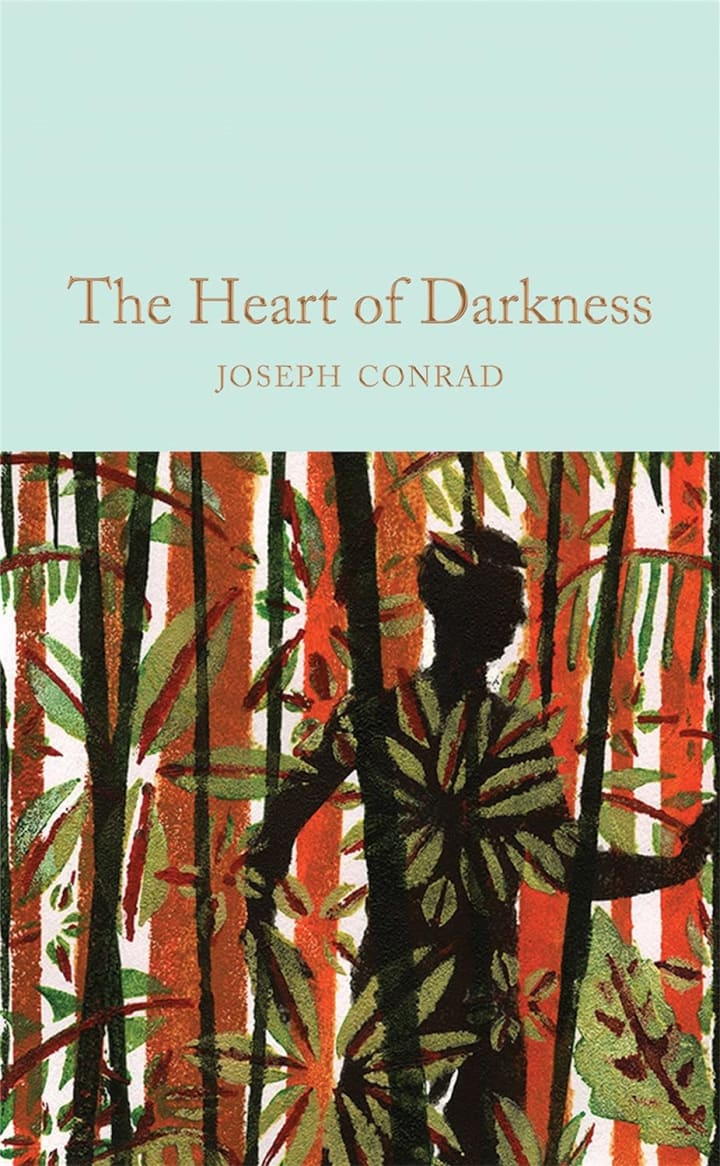
“…nowhere in the novel does Conrad or any of his narrators, personified or otherwise, claim superiority on the part of Europeans on the grounds of alleged genetic or biological difference…”
- Peter Firchow (Conrad Scholar)
Although Chinua Achebe may have had his opinions which are fair, many critics (including African readers) have thought Achebe’s critiques have been a bit narrow-sighted as nowhere does Conrad address any kind of superiority and Conrad acknowledges the badly behaved antics that caused death and destruction often performed by the white men of Europe.
The text was a huge success in Conrad’s own day and yet, throughout the years, many people including Achebe have overlapped Marlow’s words with Conrad’s, which is never a good idea. The question of Conrad’s racial implications through the novella keep coming back but that’s not important when we talk about the sheer writing itself. It is though, in the greater landscape of socio-political life.
The writing is bleak and dark, it is dull and dreadful and perhaps it can be considered one of the first real books of the modern horror genre ever written. We had 19th century horror, and now we are moving towards the 20th century, we are getting more realism, more visceral terror and more philosophical darkness involved.
Conclusion
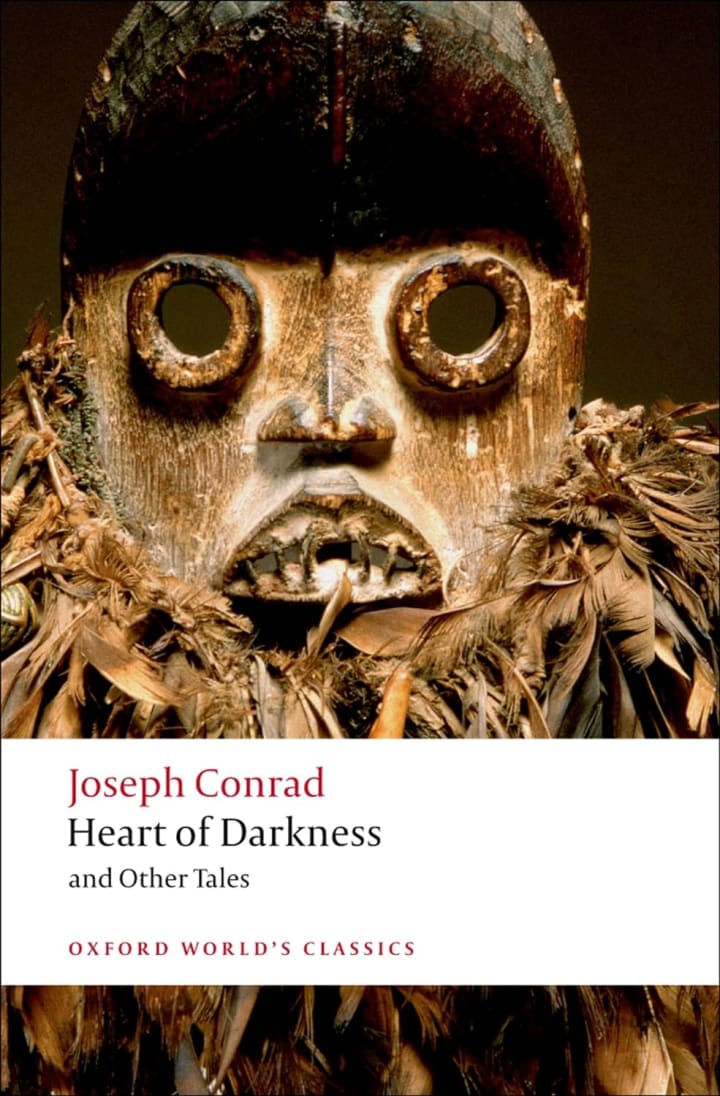
All in all, it is important not forget Achebe’s critique no matter how strange it may seem to some scholars. But it is also important to keep an open mind about the text because we don’t know Conrad’s true intentions. Joseph Conrad did a wonderful job at displaying the true madness of Europeans entering Africa, a continent of gold, wonder, possibility and above all - togetherness, and realising they were on the outside. To me, it represents all the ironies of the so called ‘empire’ which preached this togetherness but in the end, didn’t have any.
Next Week: Blood Brothers by Willy Russell
About the Creator
Annie Kapur
200K+ Reads on Vocal.
Secondary English Teacher & Lecturer
🎓Literature & Writing (B.A)
🎓Film & Writing (M.A)
🎓Secondary English Education (PgDipEd) (QTS)
📍Birmingham, UK
Enjoyed the story? Support the Creator.
Subscribe for free to receive all their stories in your feed. You could also pledge your support or give them a one-off tip, letting them know you appreciate their work.






Comments (1)
A great text can raise all sorts of ugly feelings...and still be great. It is impossible to imagine postcolonial literature without the work of Conrad, and I thank you again for another excellent review. Well, off to Dylan a little bit more...